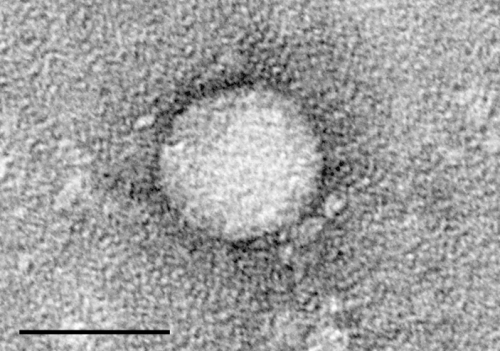
Patients who received a transplanted liver infected with hepatitis C and were later treated for the infection performed as well in recovery as transplant patients who received an organ free of infection, according to study from the University of Cincinnati College of Medicine and UC Health recently published in the journal Liver Transplantation.
Two sets of 32 patients were enrolled in groups: one group receiving livers for transplant from donors testing positive for hepatitis C (HCV) and a second receiving livers for transplant from donors testing negative for the infection. One patient in the experimental group died as a result of factors not related to hepatitis C during transplantation.
“What we found is that you can use hepatitis C infected livers and the results in this interim analysis are the same whether there is a need to treat organs affected by hepatitis C or not,” explains Shimul Shah, MD, professor of surgery in the UC College of Medicine, the James and Catherine Orr Endowed Chair of Liver Transplantation, section chief of transplantation at UC Health and senior author of the study. “Everyone who received a liver affected by hepatitis C was cleared of the virus.”
As part of the clinical trial, 32 patients received HCV-positive livers while a control group of 32 patients, all at University of Cincinnati Medical Center, received non infected livers for transplantation between June 2018 and October 2019. No HCV treatment failures were reported and there were no differences in 30-day and one-year graft (or organ) and patient survival, length of hospital stay, complications or blood infections between the two groups.
“HCV-positive organs can be safely used in patients who do not have the infection, and HCV can be safely eradicated, thereby increasing the chances for the patients to receive vital organ transplants,” said Nadeem Anwar, a professor in the UC Department of Internal Medicine, a UC Health physician and first author of the scholarly journal.
“There is a big difference between the demand and supply of livers and previously organs affected with hepatitis C were being discarded,” said Anwar. “With this study it is clear that we can help more patients get transplanted using HCV-positive organs.”
“With the opioid crisis, unfortunately, there have been more overdose-related deaths and some of these patients do donate organs,” said Anwar. “Some of these organs may be hep C-positive, but since the donors are young, the livers are still in very good condition and can be used for transplants.”
Nationally, there are 13,000 patients waiting for liver transplants. In 2019, 133 liver transplants were performed at UC Medical Center, said Shah.
“This is the largest study of liver transplantation published in North America,” said Shah. “This is the first one published for liver transplant patients proving you can do this safely and that’s why we wanted to get it out there.”
The median age for individuals receiving a HCV-positive liver in the study was 60, while for the control group the media age was 57. Median donor age was 37. Most of the participants in both groups were white males. Individuals needing treatment for hepatitis C received it 47 days after transplantation.
Shah said physicians wanted to make sure there were no complications from the liver transplant and they also needed to wait for insurance companies to cover the cost of hepatitis C medications, which typically consists of a 12-week regimen of an HCV protease inhibitor.
Source: Read Full Article
